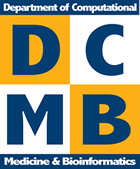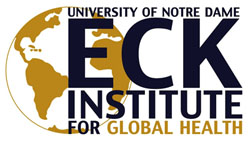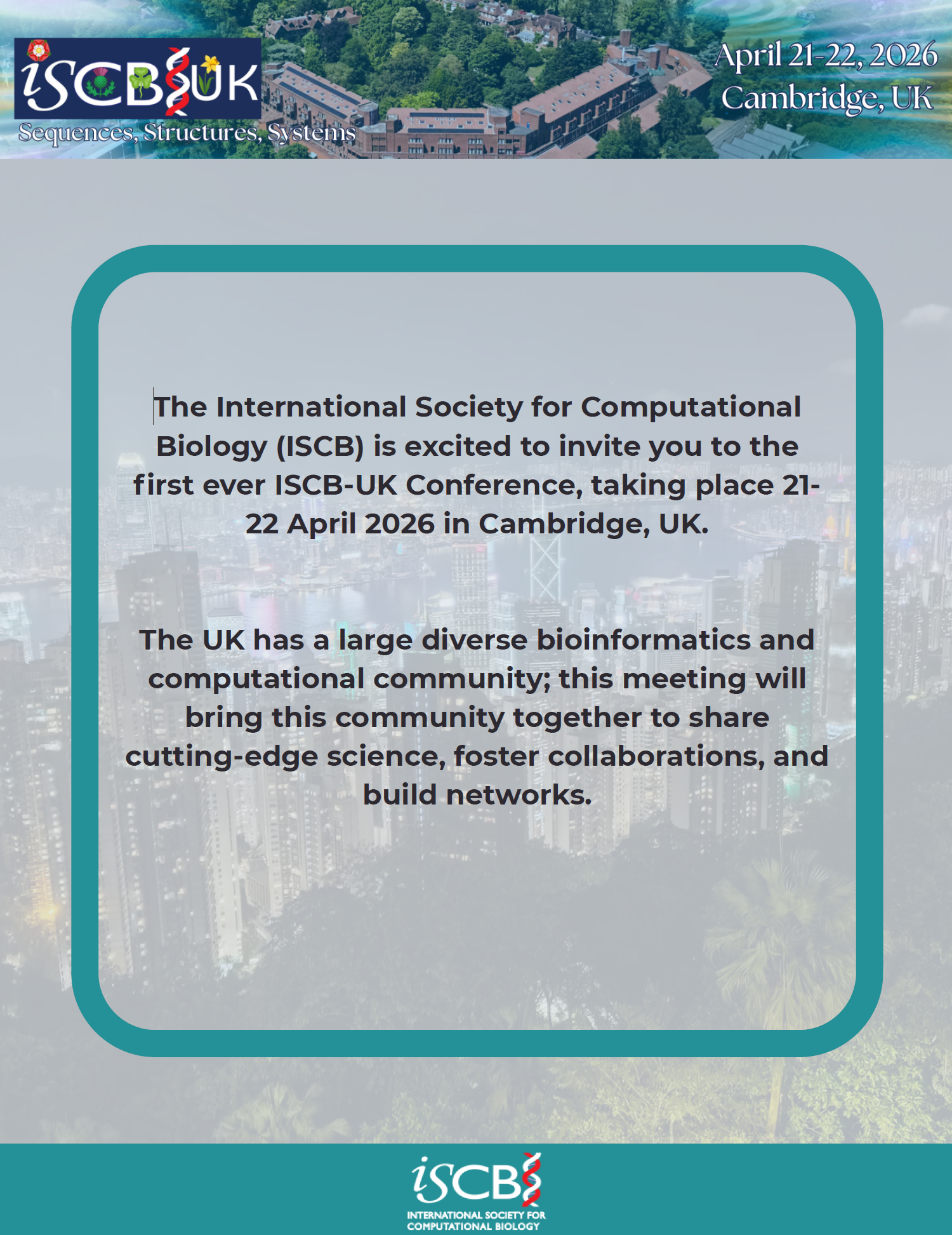ISCB-UK 2026 welcomes abstract submissions featuring research at the forefront of bioinformatics and computational biology. We encourage the submission of original work for consideration for oral and/or poster presentation.
All presentations are categorized based on scientific topics, ensuring a cohesive organization of talks and posters. Please ensure that your abstract communicates a scientific result and refrains from serving as an advertisement for any commercial software package or products.
ISCB-UK embraces a broad interpretation of bioinformatics/computational biology. Topics of particular interest encompass, but are not limited to, the following:
- AI and machine learning in Biology and Medicine
- Bioinformatics resources and infrastructure
- Databases, Ontologies and Biocuration
- Disease Bioinformatics/Translational Medicine
- Cancer genomics and personalised medicine
- Evolutionary, Comparative Genomics and Phylogenetics
- Metagenomics and Microbiome Analysis
- Multi-Omic Informatics
- Network Biology and Systems Biology
- Protein/RNA Structure Analysis, Prediction and Design
- Single-Cell Analysis
- Drug Discovery and Repurposing
- Bioinformatics Education
- General Computational Biology
Abstracts: Submission Guidelines
Presenters of accepted abstracts are required to make the presentation themselves and must register and pay to attend the conference.
Submitters may choose to have their submission reviewed for: (i) talk only, (ii) talk and poster or (iii) poster only. If you select talk and poster, and are unsuccessful for a talk, your abstract will automatically be considered for a poster presentation. Submissions must be received by Thursday, February 5, 2026.
This conference will feature a student-organized symposium on the morning of April 21. The submitter will be asked to indicate their wish to be considered for presentation within this section of the conference. Students and Post-docs are strongly encouraged to consider opting into this option as well as the option to be considered for the main conference.
Participants who opt for (i) talk only or (ii) talk and poster are required to submit:
- Both a 250-word abstract to be posted on the conference website AND a long abstract of up to one (1) page in PDF format.
Participants who opt for (iii) poster only are required to submit:
- A 250-word abstract to be posted on the conference website.
All abstracts must be submitted using the conference submission site by the abstract deadline: February 5, 2026.
Important Dates
Submission Deadline: February 5, 2026
Abstract Decision Date: March 6, 2026
Late-Breaking Posters Deadline: February 26, 2026
Late-Breaking Poster Decision Date: March 6, 2025
Why Submit?
ISCB-UK 2026 provides a leading platform for presenting groundbreaking research, engaging with peers, and advancing computational biology. Join us in exploring cutting-edge innovations and impactful discoveries.
Submit your work and be part of this conference!
Conference Venue
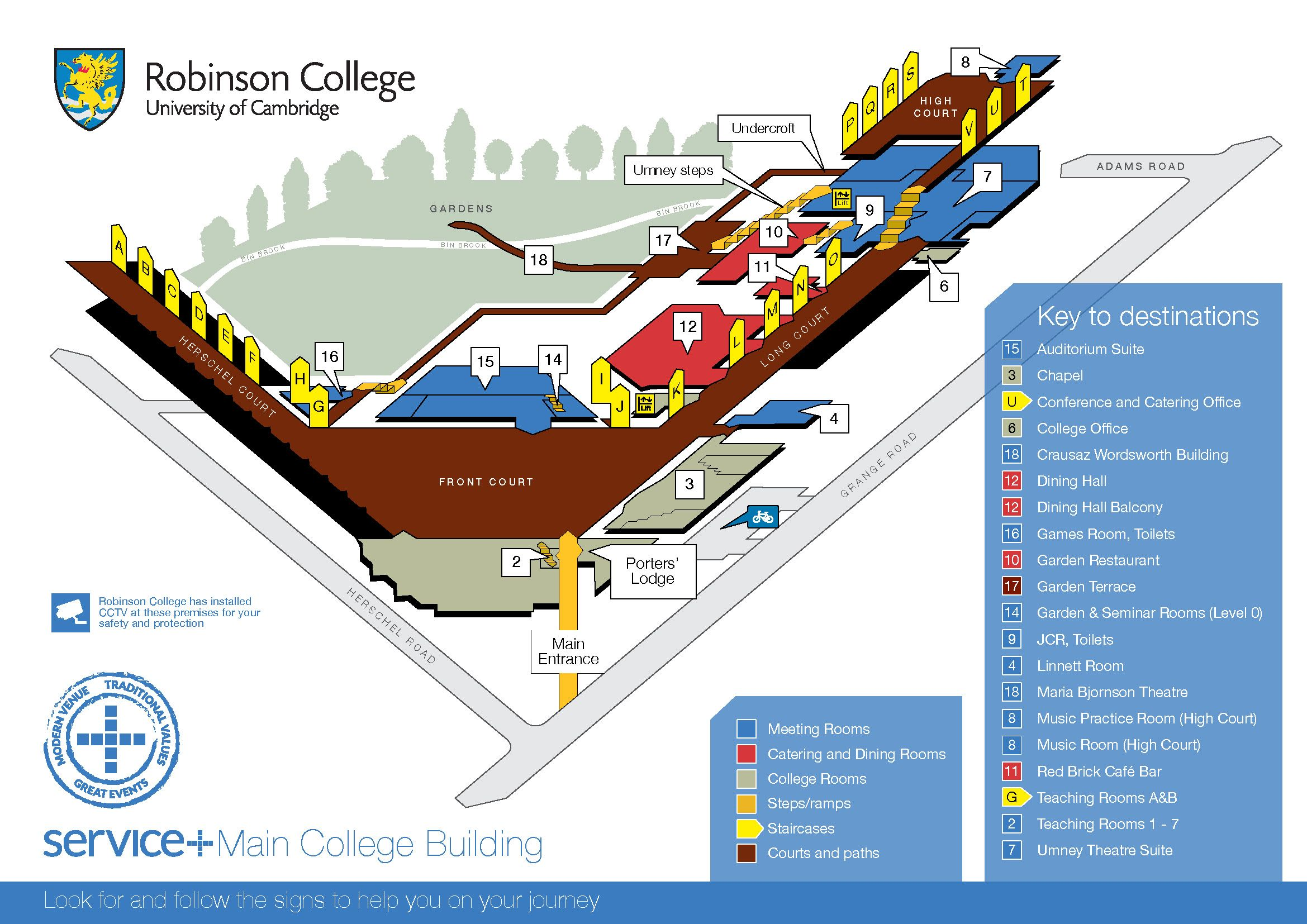 Robinson College, University of Cambridge
Robinson College, University of Cambridge
Grange Road, Cambridge, CB3 9AN, UK
The main conference and student event will be held in the Auditorium (15). The Dining Hall is the location for lunch (12).
Click map to enlarge
Conference Dinner Venue
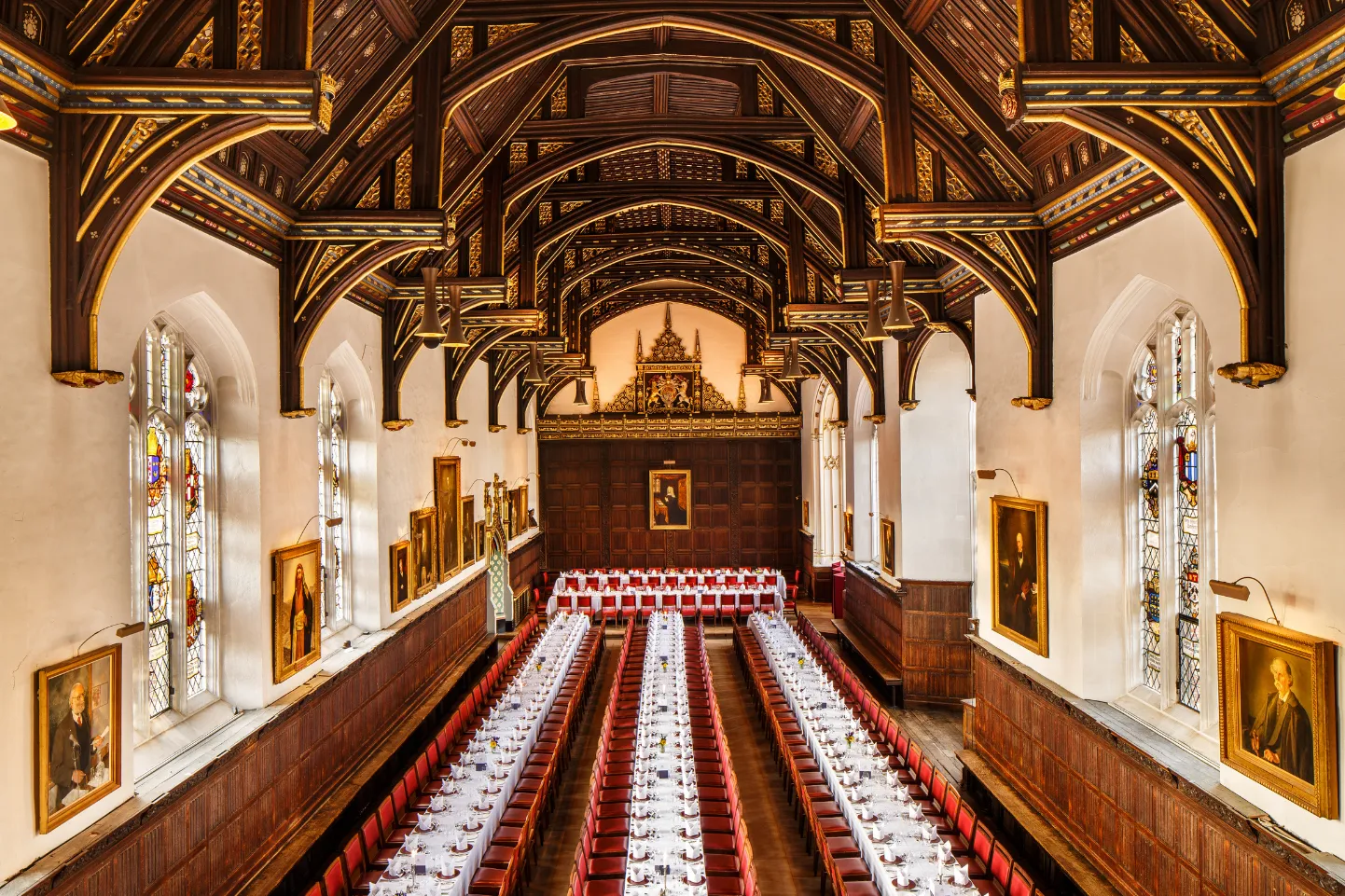 St John's College, The Hall
St John's College, The Hall
St Johns St, Cambridge CB2 1TP, United Kingdom
Accommodations
Stay at Robinson College
 We have organized a special bed and breakfast rate at Robinson College. Rooms are limited. Use the promotional code 52312 when making your booking. Book a room here.
We have organized a special bed and breakfast rate at Robinson College. Rooms are limited. Use the promotional code 52312 when making your booking. Book a room here.
Additionally, there are a variety of other accommodation choices in Cambridge. The following places are within a short walking distance from Robinson College and located in the Cambridge College area - booking link.
-
Selwyn College (both Ann’s & Cripps Court are within easy walking distance of Robinson College)
-
Gonville & Caius College (The Stephen Hawking Building & Harvey Court – they’re both on the same site which is West Road)
-
Clare College (Memorial Court)
-
Newnham College
Other options can be found at https://www.meet-cambridge.com/events/accommodation/other-accommodation-in-cambridge/.
Links within this page: Rob Finn | Syma Khalid
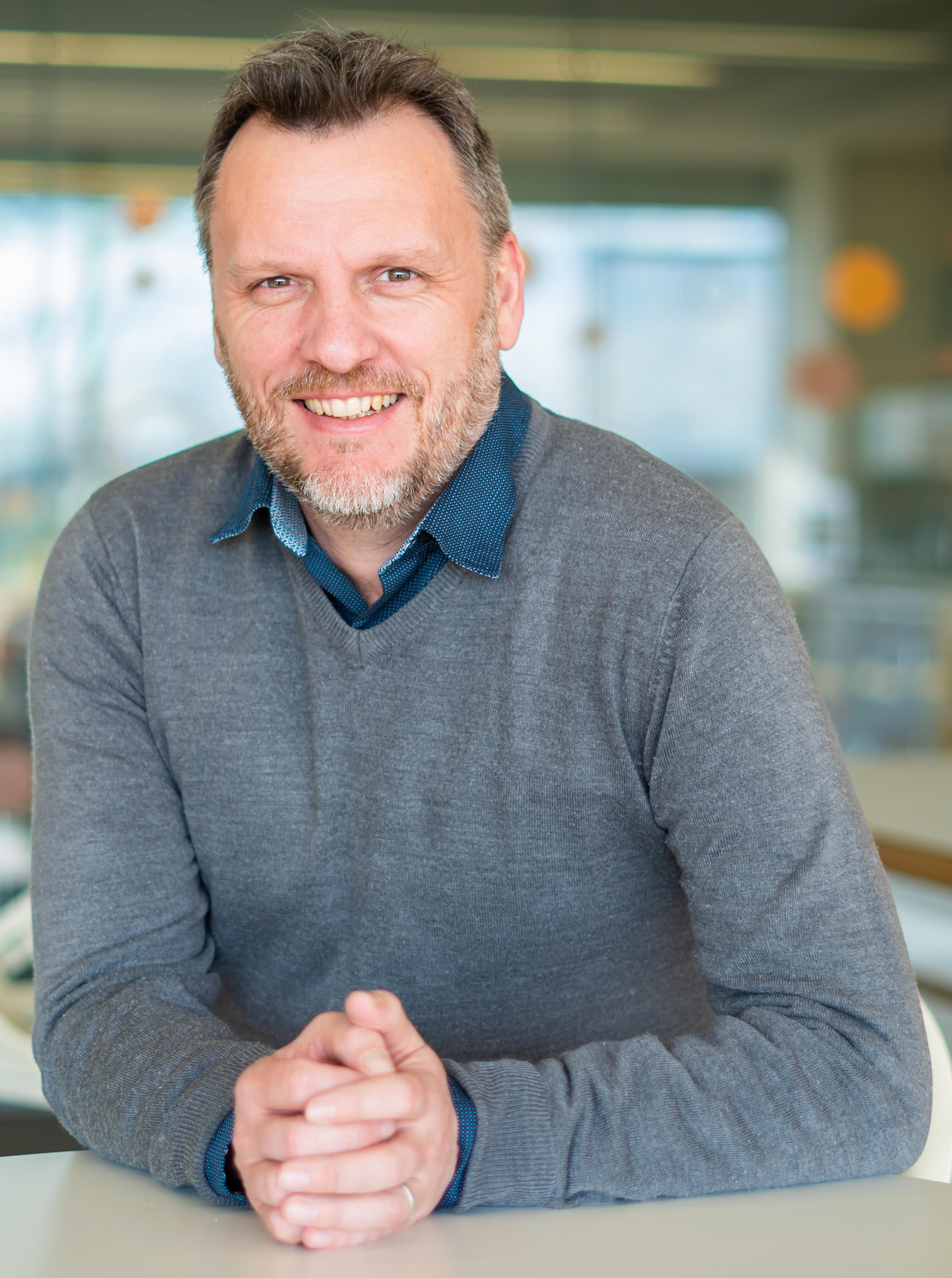 Rob Finn
Rob Finn
European Bioinformatics Institute
Dr. Rob Finn heads the Genome Assembly and Annotation Section and is the lead of the Microbiome Informatics team at EMBL's European Bioinformatics Institute (EMBL-EBI). Rob is also co-lead on Ensembl, and while maintaining scientific oversight for the whole resource, part of his team responsible for the microbial divisions found in Ensembl. The Microbiome Informatics team also produces MGnify, a world leading resource for the functional and taxonomic analysis and archiving of microbiome derived sequence data. In addition to making large numbers of datasets available, each processed in a systematic way, the resource allows scientists to upload their own data, either privately or publicly, and assemble and analyse their data. Across the MGnify resources, >400K genomes, >60,000 assemblies and >2.4 billion redundant proteins. Complementing these biological resources, Rob has a small research team that develop algorithms for exploring microbial genomic diversity, as well as gaining deeper insights into the interaction between bacteria and phages. Rob joined EMBL-EBI from the Janelia Research Campus in the US, where he led a group that designed fast, web-based, interactive protein-sequence searches and annotations. Between 2001 and 2010, he was the project leader for Pfam at the Wellcome Trust Sanger Institute in the UK. Rob’s academic background is in microbiology and he holds a PhD in biochemistry from Imperial College, London
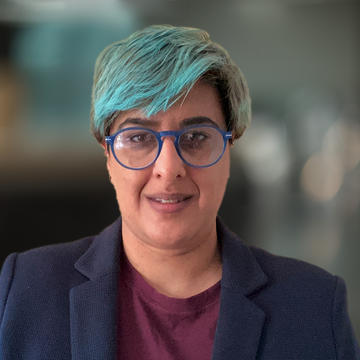
Syma Khalid
University of Oxford
Syma graduated with a first class degree in Chemistry from the University of Warwick in 2000. She remained at Warwick to read for a PhD under the supervision of Prof. P. Mark Rodger. After obtaining her PhD in 2003, she moved to the University of Oxford as a postdoc in Prof Mark Sansom’s lab, to study the structure-function relationship of bacterial outer membrane proteins. During her postdoctoral work, she became interested in the application of molecular simulation techniques to problems in bionanotechnology. In 2007, she was appointed as RCUK fellow in chemical biology at the University of Southampton. In 2010, she was appointed to a lectureship at Southampton and promoted to full Professor in 2016. In 2021 she was appointed as Professor of Computational Microbiology at the Department of Biochemistry, University of Oxford and Tutorial Fellow at St Anne’s College. Syma is the chair of HECBioSim and is on the Council of the Biophysical Society. She currently holds an EPSRC Established Career Fellowship
Current research
The main theme to the research in my group is the use of computational techniques to explore the structure-function relationships of a range of microbial membranes/cell envelopes, with a particular focus on Gram-negative bacteria. We strive to construct simulation systems that include as much biochemical complexity as is practical such that we see our simulations as computational assays. Using such an approach we are moving towards doing 'Computational Microbiology'.
ISCB-UK 2026 registration pricing will be released in January 2026. Conference registration will include access to the scientific sessions, daily lunch, breaks and the conference dinner at St. John's College. The conference organizers are working diligently to secure sponsorship for the conference to make the registration cost as low as possible. If you wish to sponsor the conference, please visit our sponsorship page for more information.

